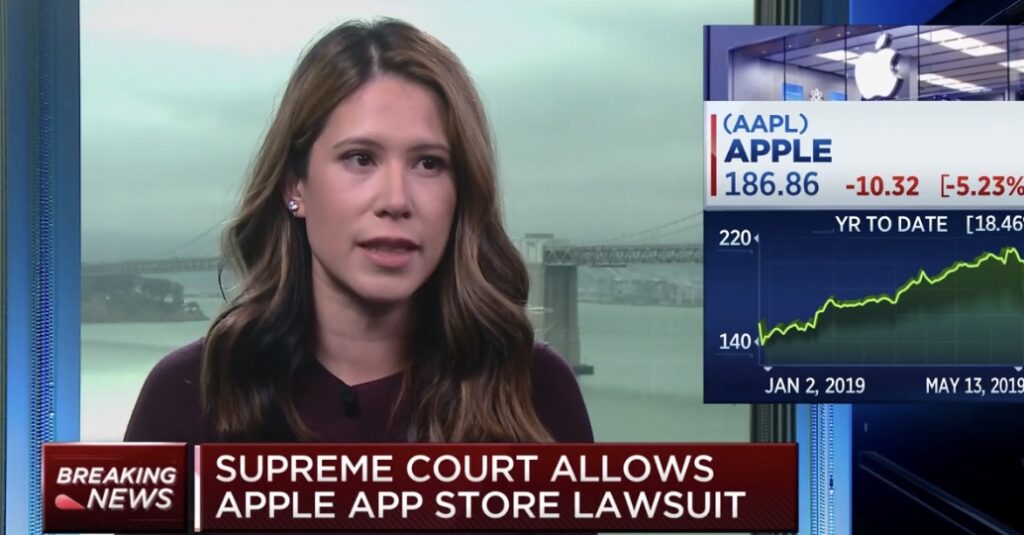
KEY POINTS
- The Supreme Court, ruling 5-4, allows iPhone users to pursue their antitrust lawsuit against Apple in a case involving its signature electronic marketplace, the App Store.
- Justice Brett Kavanaugh wrote the majority opinion, which was joined by the court’s liberal justices.
- The iPhone users argued that Apple’s 30% commission on sales through the App Store was passed along to consumers, an unfair use of monopoly power. Apple argued that only app developers, and not users, should be able to bring such a lawsuit.
The Supreme Court on Monday ruled 5-4 against Apple, saying iPhone users can pursue their antitrust lawsuit involving the tech giant’s signature electronic marketplace, the App Store.
Justice Brett Kavanaugh wrote the majority opinion, which was joined by the court’s liberal justices.
The iPhone users argued that Apple’s 30% commission on sales through the App Store is an unfair use of monopoly power that results in inflated prices passed on to consumers.
Apple argued that only app developers, and not users, should be able to bring such a lawsuit. But the Supreme Court, in an opinion authored by Kavanaugh, rejected that claim.
“Apple’s line-drawing does not make a lot of sense, other than as a way to gerrymander Apple out of this and similar lawsuits,” Kavanaugh wrote.
Shares of Apple, already battered by trade concerns, were down 5%, lagging the broader market. However, Apple’s App Store generated $54.2 billion in revenue in 2019, up from $46.6 billion in 2018.
The result was widely expected after arguments in November in the case, Apple v. Pepper, during which the justices seemed skeptical of Apple’s arguments.
The case split President Donald Trump’s two nominees to the high court. In a dissent joined by his fellow conservatives, John Roberts, Clarence Thomas and Samuel Alito, Justice Neil Gorsuch wrote that the majority created an “artificial rule.”
Continue reading here.
[Editor’s Note: This article was written by Tucker Higgins and originally published at CNBC. Title changed by P&P.]











